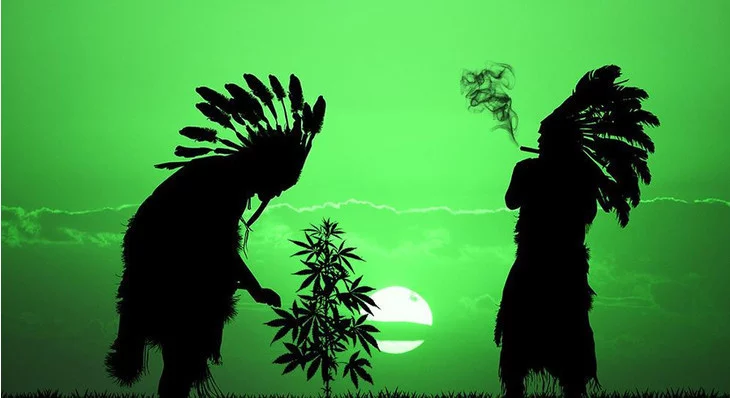Native American Tribes Unite to Create the World’s Largest Cannabis Producers Alliance
Members of the Cherokee, Cheyenne, Mohawk, and Arapaho tribes have allocated over 200,000 hectares of their land for cannabis plantations and processing facilities. The plan is for Native American cannabis products to be supplied to cannabis brands working with a new online marketplace launched by the startup Everscore.
This year, the Cherokee Nation Health Foundation and Everscore, a startup introducing direct-to-consumer sales of THC and CBD products through an online marketplace in the U.S. cannabis industry, established a subsidiary called the Native American Cannabis Alliance. Recently, this new organization signed several memorandums of understanding with farmers from the Cheyenne, Mohawk, and Arapaho tribes.
This series of agreements has enabled the use of more than 500,000 acres (202,300 hectares) of tribal agricultural land for cannabis cultivation. It has also led to the creation of cannabis processing campuses on tribal lands and paved the way for collaboration between Native Americans and brands featured on the Everscore online marketplace.
“The cannabis industry offers Native peoples a historic opportunity to work together to shape the future of the industry and ensure sovereignty for our communities,” said Tim Houseberg, Executive Director of the Alliance.
By joining the Alliance, Native American farmers become part of Everscore’s sustainable business ecosystem as product suppliers. Native resources will be involved in cultivation, processing, logistics, and marketing. The collaboration is expected to help tribes restore their agricultural heritage while generating profits to support their development.
“The cannabis industry is experiencing explosive growth and is expected to reach $100 billion by 2030, but opportunities are not distributed equally,” said Jeffrey Sampson, founder of Everscore. “We are using modern technology to overcome a fragmented supply chain and create a more sustainable ecosystem, while benefiting Native communities.”
Native American tribes in the United States possess territorial sovereignty, allowing them to set their own policies within their lands. Their policies can differ significantly from those of federal or state authorities.
As a result, some tribes have liberalized the legal status of cannabis even in jurisdictions where it remains prohibited. For example, in 2020, the Oglala tribe legalized cannabis cultivation on their reservation in South Dakota, and this year, the Eastern Band of Cherokee Indians decriminalized cannabis use on their lands in North Carolina.



